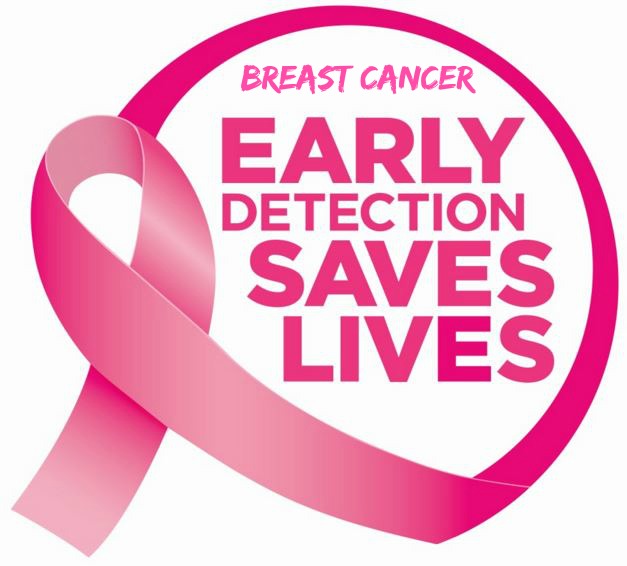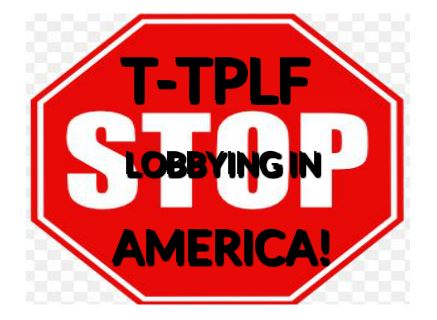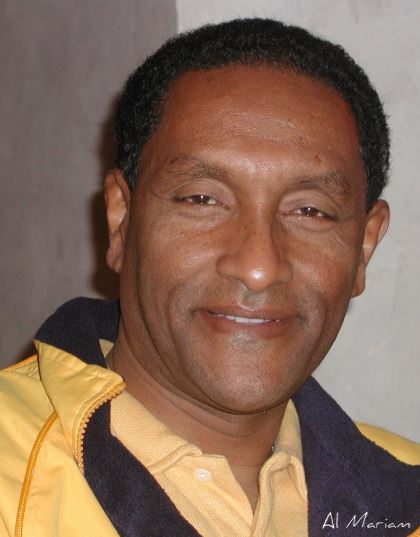Another Letter to My Ethiopian Sisters
Mesrak Gessesse
I am now writing this as I just finished my annual mammogram and ultra sound testing for breast cancer.
Exactly five years ago to the day on October 25, 2010, I wrote an article discussing my experiences after being diagnosed with breast cancer. (Please click here to read that article.)
I now write “Another Letter to My Ethiopian Sisters” as a follow-up to share with Ethiopian women particularly my experiences over the past five years.
More importantly, I hope to encourage Ethiopian women, particularly those over the age of 45, to do regular mammograms to monitor for early detection of breast cancer.
October is “Breast Cancer Awareness Month” in the United States and many other countries as well as the World Health Organization.
Breast cancer is the most common cancer in women worldwide and accounts for 25% of all cancers in women.
I was diagnosed with breast cancer in 2009 during an annual mammogram, a simple and painless process in which an X-ray image of the breast is taken to check for unusual signs.
Mammograms are among the most important tools for the early detection of breast cancer.
But breast self-exams and ultrasounds (a simple and painless procedure where they use sound to create pictures of the inside of the body) are also important diagnostic tools in the early detection of breast cancer.
My breast cancer was confirmed in a biopsy, a simple process in which doctors take a tiny piece of tissue from the breast to test for unusual cell growths.
My breast cancer was luckily caught in its earliest phase known as “Stage 0”.
Early breast cancer detection in most cases leads to effective treatment of the disease and prevention of its return.
I remember that when I heard the word “breast cancer” from my doctor’s mouth, I was totally shocked and scared.
A lot of things went through my mind. I went through an emotional roller-coaster.
I kept asking myself, “Why me?!”
But I thank God that I received early detection in 2009 and now give all of the glory and praise to God for keeping me breast cancer free in my sixth year.
The procedure for the removal of the cancerous tissue on my breast was not simple but it was worth it.
My surgeons did a “lumpectomy” which is the removal of the breast tissue affected by cancer. Then I was given radiation treatment, a process in which invisible rays are directed in my breast to kill any leftover cancerous cells from the surgery.
Radiation therapy is planned for individuals breast cancer patients in a process called “treatment planning.” The radiation treatment takes place over 4-5 weeks. The actual treatment takes seconds.
Although I felt somewhat tired after each treatment, I was able to work full time during the entire time I was getting radiation treatment without any problems.
Since my cancer was only “Stage 0” and did not involve any lymph nodes (special organs found in different part of the body that are important in the functioning of the immune system which protects the body from disease), I did not have to do chemotherapy (drugs (instead of radiation) that kill cancer cells).
After I completed my radiation treatment, I was put on a medication called Tamoxifen. I took one tiny pill every day for 5 years. Tamoxifen prevents the certain types of cancer cells, including breast cancer, from growing.
Thank God, I have not experienced any complications over the past six years as a result of my treatment for breast cancer.
The main reason I am sharing my experience six years after the fact is because I think I can help remove the fear, shame and stigma of being diagnosed with breast cancer and to emphasize the fact that early diagnosis is the key to survival for breast cancer.
Over the past five years, I have talked to many women in person, over the telephone and in group settings about breast cancer. I talked to women who had been diagnosed at different stages; some at advanced stages.
I have had members of my extended family face the curse of breast cancer over the past five years. Thank God, because of early detection, all of them have defeated breast cancer.
On balance, I can say that success in defeating breast cancer was the result of early detection through regular mammograms.
I have met some women who could not understand how I could come out and openly discuss my breast cancer in public. I think they probably thought breast cancer is something to be ashamed of and not to anyone, even family members.
I believe the greatest threat to women is not breast cancer itself, but the fear and cultural holdbacks that prevent women from openly acknowledging the fact they have breast cancer and seeking immediate medical care for it.
I know of women who hid their breast cancer even from their husbands and children until it was too late. Maybe that is a cultural problem. Some Ethiopian women may prefer to keep hidden from others even life-threatening diseases.
The sad thing is that everyone knows how they died after they died.
I don’t want that to happen to any woman. That is why I am coming forward to say I had breast cancer. I was lucky to be sensible enough to do regular mammograms which resulted in early detection.
There is no shame in being afflicted with breast cancer. No woman gets breast cancer by being irresponsible or doing bad or immoral things. Breast cancer could be in the genes or in the environment. But there is no reason to be ashamed.
I often ask Ethiopian women if they have diabetes or high blood pressure. I ask them if they would not tell their families or friends if they have those diseases. All of them say they would. But when I ask them about breast cancer, most of them hesitate and waffle.
Breast cancer is just another disease which like diabetes and high blood pressure can kill if not detected early and treated.
How many people die from strokes due to untreated hypertension (high blood pressure)?
Having survived breast cancer, I know exactly what it means to be diagnosed with it and also getting treatment for it.
There is nothing to fear about breast cancer except the fear of breast cancer and hiding it until it is too late.
I want to emphasize two things. First, it is very important for Ethiopian women over 45 to do regular mammograms for early detection. Second, if they are diagnosed, it is very, very important to openly discuss their situation with all members of their families and friends.
Family members and friends were incredible sources of support and inspiration for me as I went through the experience.
Let me say from experience that I believe the love and support of friends and families is probably the least recognized but most effective treatment and cure for any cancer.
I understand that as Ethiopian immigrant women mothers, wives, sisters, and grandmothers, we focus more on nurturing our families’ health care needs more than our own.
It seems to me that most Ethiopian mothers would rush to get our children have their annual physical exams or take them to the emergency room than make time to take ourselves to the doctor’s office or the hospital for a mammogram that takes just a few minutes.
I know that many Ethiopian women in Ethiopia and elsewhere may lack the resources to get regular mammograms.
I wish there was a way Ethiopian women in the Diaspora could come together and establish a fund to help poor women in Ethiopia get early diagnosis and treatment. Maybe there will come a time when those of us in a position to help poor women in Ethiopia could get together and establish a foundation for them.
Let me also make the point that another important reason for me to continue to share my experiences as a breast cancer survivor is to make sure that many Ethiopian women you who have been newly diagnosed in the United States not lose hope.
Breast cancer is not a death sentence. It is another disease that can be treated effectively with early detection. There are so many advanced state of the art treatments available to you.
It is important to know that Ethiopian women without health insurance in the U.S. can still get free mammograms through Medicaid or by signing up for the Affordable Care Act (“Obama Care”). Working in the health care industry dealing with such issues directly, I know that more and more women are taking advantage of these programs to get early diagnosis for breast cancer. Ethiopian women should also take advantage of the available services.
One of the important things I would recommend to Ethiopian women particularly with a family history of cancer to do diagnostic screening.
There is a test called The BRAC1-2 done to determine if there is genetic predisposition for breast cancer (family history). Often cancer in immediate family members is a good reason to do these tests.
Let me stress again the importance of having a support system while undergoing treatment for cancer. Having physical and spiritual support groups, in addition to family and friends, is very important for women undergoing breast cancer treatment.
I recall feeling lost, scared, alone and depressed after I was diagnosed with breast cancer. That is a normal feeling. Every woman who has ever been diagnosed has undergone that feeling.
All of them have asked, “Why me?”
What I want to share with my Ethiopian sisters is that breast cancer detected early is not terminal.
Here are the facts on survival rates for breast cancer from the National Cancer Institute for a five year period: Stage 0 (100%); Stage 1- (100%); stage 2 (93%); stage 3 (72%); stage 4 (22%).
Even at the worst stage 4, 22 percent of women survive to five years, the time line they are considered breast cancer free!!
So, if breast cancer is diagnosed early and treated it could be cured and prevented from returning. Modern medicine has advanced significantly over the past several decades.
It is important to follow the physicians’ recommendations in staying active, exercising, eating a more vegetarian diet and maintaining spiritual support.
Since we live in a very busy and demanding time, we need to have tools to de-stress and meditate.
For me, prayer time is the most peaceful time. I keep a positive state of mind and do what little I can to help others.
So, as Ethiopian women, wherever we are, we need to support and empower each other.
The author works in health care administration in Southern California and is actively involved in efforts to promote early cancer detection, education and treatment. She may be reached at mesrak@gmail.com







